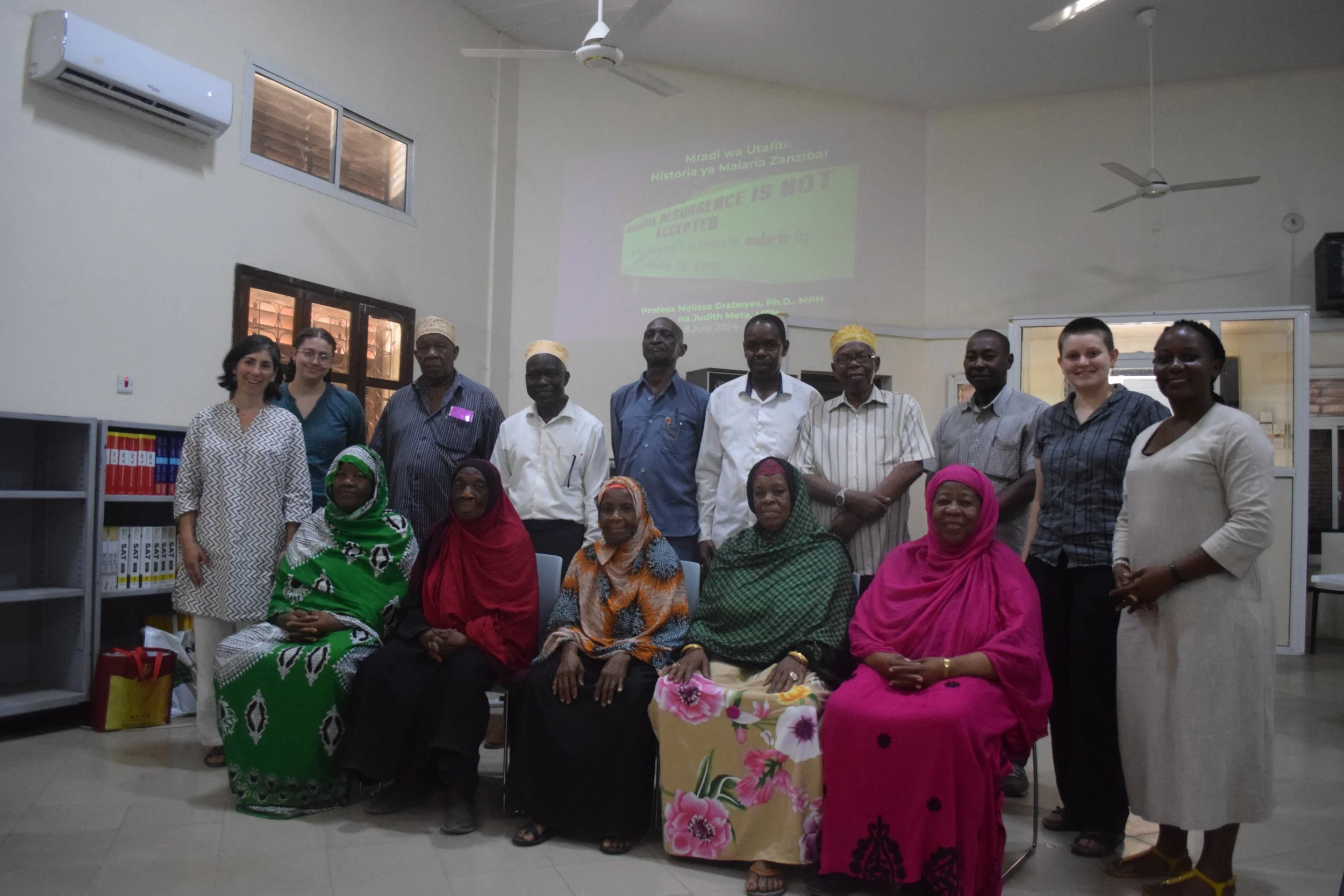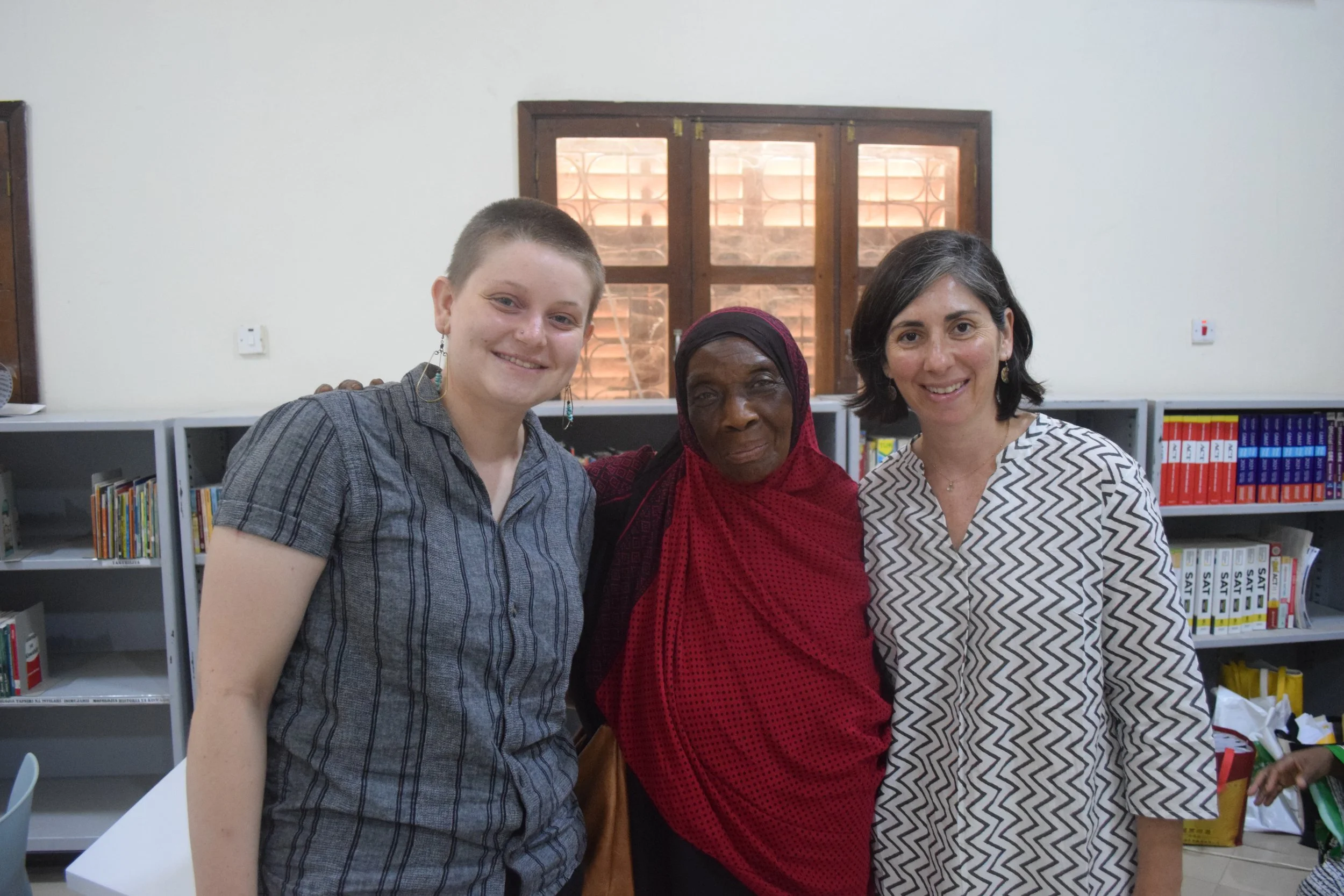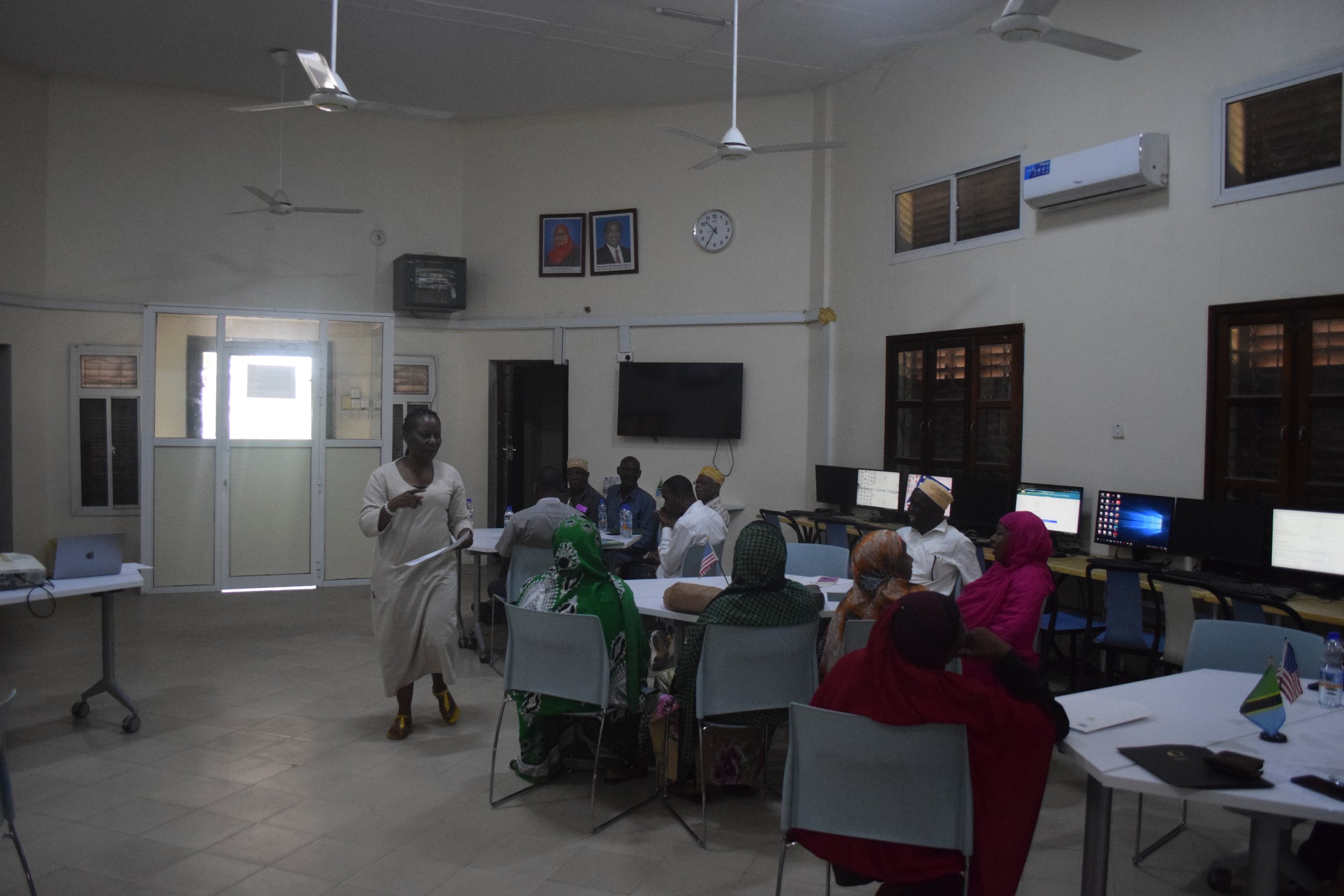Returning Research Results to Participants
In July 2024, I spent time on Unguja Island (Zanzibar) to return results from a prior research project about the history of malaria elimination attempts on the island (funded by NSF CAREER grant #1844715). My Tanzanian collaborator Judith Meta co-led these activities, and we brought along a graduate student in Economics from the University of Oregon, who is working as a research assistant on a new NSF project about the ethics of returning research results.
Our goal while in Unguja was to figure out how to return results of this historical research project back to the actual participants (i.e. Zanzibaris we had interviewed) in addition to sharing the information with relevant stakeholders such as government. We felt this act of returning results was important as an act of respect to participants who enabled our research (i.e. took time to speak to us, to share knowledge, and to facilitate our learning of this topic); in order to keep “good relations” with individual participants and community members where we worked by returning to show our appreciation and share findings (credit to Max Liboiron’s Pollution is Colonialism); to allow participants to respond to our findings with their own thoughts, feedback, and questions; and to more thoughtfully bring an end to this particular research encounter. Our thinking about the importance of this step in the research project has been informed by ongoing research about the ethics of returning results, funded by the NSF’s Ethical and Responsible Research program area.
We ultimately decided to share results in a few different formats, and through a few different types of activities :
English/Swahili info sheet about the research project and results. HERE
English/Swahili abstracts of published papers. HERE
publications available Open Access
printed copies of full articles in English
a public meeting for members of the lay public. Slides in Swahili HERE
a public presentation to the Zanzibar Malaria Eradication Programme (ZAMEP). Slides in English HERE
Returning results to past participants at a public meeting. State University of Zanzibar. Zanzibar Town. July 8 2024
What we learned…
Hoping that others might also want to return results to their research participants, some details:
While every place is going to be different, we found that in Zanzibar, it was expected that when convening a public meeting and asking people to attend (even to receive research results) there should be food, drinks, a package of printed materials, a notebook and pen, and a small amount of monetary compensation. Our team decided to provide folders with the English/Swahili info sheet, the English/Swahili abstracts of published papers, a clean notebook, and a writing pen. As we led a two-hour long morning session, we had bottled water, tea, uji, chappatis, chicken, cutlets, and other small bites available for all participants. All participants were also thanked with 10,000 TShs (approximately $3.70) to offset transportation costs to arrive at the venue, and in recognition of their time to participate in the meeting.
We learned that… returning results wasn’t necessarily costly in money, but it was costly in time. Although the material costs of returning results were not especially high (venue was free; food and drinks were less than $200; compensation to participation was less than $60; printing materials was under $100), it was a costly activity in terms of time. It took 3-4 full work days of Judith and I working together to develop all the materials in English/Swahili, and to develop presentations that felt appropriate not just for expert audiences, but lay members of the public also.
We learned that… it was very challenging to actually reach our original participants. Despite Judith doing a heroic job calling past participants (or people in their area if that person didn’t have a phone) it was extremely hard to recruit people to attend the public meeting. We ultimately had 11 people attend the public meeting, out of more than 75 people who could have potentially attended (i.e. original participants subtracting those who had passed away). Our project was “easy” in that it was geographically concentrated on people living in the urban area near Zanzibar Town. It was “hard” in the sense that our sample skewed older (to remember historical events) and in the past five years, many elderly participants had become sick or lost mobility.
We learned that… if we want to return results to most of our participants (rather than just a few) we needed to have multiple strategies to do so. For us, in Unguja, assuming most participants would/could attend a public gathering wasn’t a good starting assumption.
We learned that…we needed to have a secondary/tertiary strategy to return results given the low turn out at our public presentation. We have decided to try following up with phone calls to past participants. We are in the process of developing that script, but our plan is to call, re-introduce ourselves and remind them of the original project, ask if they are interested in hearing about results, then read them a 3-5 minute script describing the results, followed by a time for them to ask questions. We will offer to share websites with more information if they’re interested, and let them know that folders of printed materials in English/Swahili are freely available for them to pick up at the State University of Zanzibar.
We learned that… even when you plan well, unknowns will arise. In our case, the unknown was the declaration of a national public holiday about 18 hours before our public meeting was scheduled! This was a pretty significant hiccup, but wasn’t due to negligence on our side: we had planned the dates for our trip months in advance. We had been in contact with local partners, had confirmed venue availability, and arranged individual meetings. We had scheduled our major public event with participants for Monday morning, 9-11 am, between prayers, at a time of day we had been told would be preferred. What we didn’t expect was that on Sunday afternoon, the moon would be sighted, which would lead the declaration that Monday would be a holiday in celebration of the first day of the new Islamic Year (Muharram). Since the holiday is based on the sighting of the moon, we couldn’t have known the precise date in advance.
My personal take away from the experience was that it was a challenging activity, even having thought about the process, read about it, and being committed to it. It would have been impossible for me to do this activity well without Judith’s knowledge, experience, and skill set. I’d do it again, and I’d encourage other researchers to do it to, with the support of a strong local partner, co-author, or collaborator.
If you are considering returning results and would like to talk, or have returned results and would like to share your experience, we’d love to hear from you! Please email me at graboyes @ uoregon. edu






